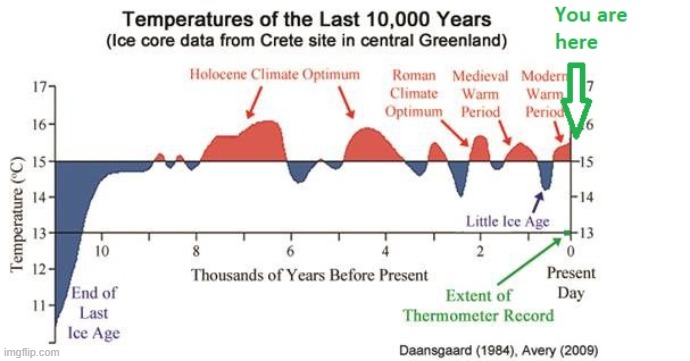Posted on 03/17/2025 2:13:57 AM PDT by SunkenCiv
The Huns suddenly appeared in Europe in the 370s, establishing one of the most influential although short-lived empires in Europe. Scholars have long debated whether the Huns were descended from the Xiongnu. In fact, the Xiongnu Empire dissolved around 100... leaving a 300-year gap before the Huns appeared in Europe. Can DNA lineages that bridge these three centuries be found?
...researchers analyzed the DNA of 370 individuals that lived in historical periods spanning around 800 years... encompassing sites in the Mongolian steppe, Central Asia, and the Carpathian Basin of Central Europe. In particular, they examined 35 newly sequenced genomes ranging from: a 3rd-4th century site in Kazakhstan and 5th-6th century contexts in the Carpathian Basin, including exceptional Hun-period burials that exhibit Eastern or "steppe" traits often linked to nomadic traditions (i.e. "eastern-type" burials)...
This link suggests that some among the Huns in Europe could trace their lineage back to important late Xiongnu burials from the Mongolian steppe. Yet the archaeogenomic picture for most Hun and post-Hun period individuals in the Carpathian Basin is far more varied... While these connections confirm the presence of some direct descendants of Xiongnu elites, the study also shows that the population of the Hun empire in Europe was genetically highly heterogeneous. Another key conclusion of the study is that the 5th century "eastern-type" burials from Central Europe are highly diverse in both their cultural and genetic heritage.
(Excerpt) Read more at mpg.de ...
The ancestors of Attila’s Huns took many generations on their way westward and mixed with populations across Eurasia”.
One would think that is a given. Not sure I would call rape “mixing”. More like “insertion”.
Don’t forget the looting and pillaging as well.
True. But looting and pillaging usually do not alter genomes.
;]
It’s a difficult confession to make, but I have never taken the time to debate whether the Huns were descended from the Xiongnu (or their ancestors the Xiongold for that matter).
This forced the Anglos and Saxons into the Denmark area. Some say they went to Britannia because of Huns moving into Denmark. I don't know how much evidence there is to support that second move. Some say the Huns' initial migration west/southwest was because of climate change -- getting too cold. Life sucks when crop yields lower, rain patters become less predictable, and deaths from plague increase.
All of these events occurred during the cooling period called the Dark Age. In the graph below, find the top of the red hump titled Roman Warm Period, which topped out around AD 300 in most studies. And follow it to the right to the bottoming of the blue dip (most studies that's around AD 900). That's roughly 600 years of cooling. The more we all learn about how bad life was during the recent two cooling periods (Dark Age, followed by Little Ice Age), the more we'd all laugh at the left every time they tell us to hate life in the Modern Warm Period.

According to a Hungarian relative, Hungarians are taught that they are descended from the Huns, and that Attila was a national hero.
The waitress at Perkins calls me Hun.
I was taught that the Huns were one of those groups not based on biology . Anybody could be a Hun. This finding doesn’t change that.
Attila is indeed a national hero. The Magyars originated from the plains between the Volga and the Urals but that is only a small percentage of the DNA of most modern Hungarians. The country was all but depopulated twice by plagues, wars, etc and the rulers invited in neighboring Slavs and Germans to help repopulate it so their DNA profile looks very much like those of their neighbors. For example, there are plenty of blondes in Hungary.
Yup. And in both WW’s Germans were called “the Hun”. I’ve got the eyes. :^)
Y’know, I should have seen that coming. :^)
“Just passing through...”
Couple of keywords ('niallofthe9hostages' and 'giocangga'), sorted:
The names of the days of the week from Wednesday to Saturday in Hungarian are borrowed from a Slavic language.
I didn't see anything in the article identifying the Y-DNA of the males they found. The Q haplogroup is extremely rare in Europe but is found in Siberia (and is very common in the New World)--I have wondered if it was brought to Europe by the Huns. (It's not my haplogroup but is found in a couple of families I am descended from.)
Yes, that is what Hungarians believe/once believed.
That’s what the British called the Germans. But what do the British know?
I lived in Budapest twice and learned the language, but I never knew that. Of course I don’t speak any Slavic languages. I do speak German however and I noticed that Hungarian has a lot of.....what I and others call mirror image translations of phrases from German. I talked to others who also speak both languages and we noticed this. For example
English = Bra or Brazier
German = Bustenhalter (”bust holder”)
Hungarian = Meltarto (bust holder)
English = train station
German = Bahnhof (train yard)
Hungarian = Palya Udvar (train yard)
and many many more. German frequently uses combinations of short words that are descriptions of things. Hungarian does the same but you notice it frequently uses the exact same descriptions. You can see the heavy German influence....makes sense given they were part of the Hapsburg Empire for centuries.
Disclaimer: Opinions posted on Free Republic are those of the individual posters and do not necessarily represent the opinion of Free Republic or its management. All materials posted herein are protected by copyright law and the exemption for fair use of copyrighted works.